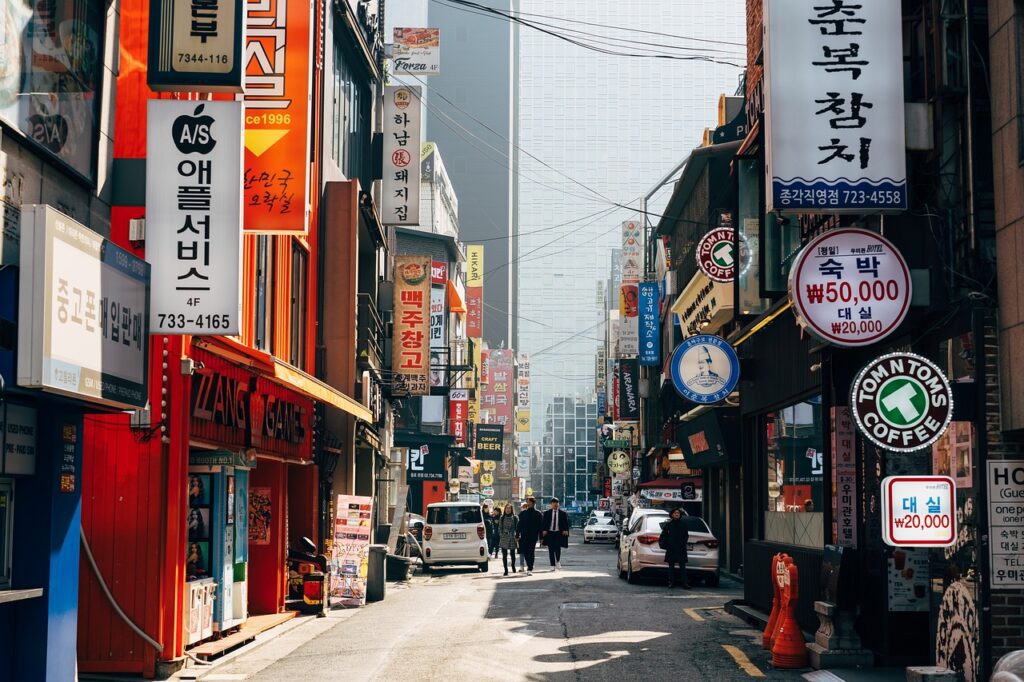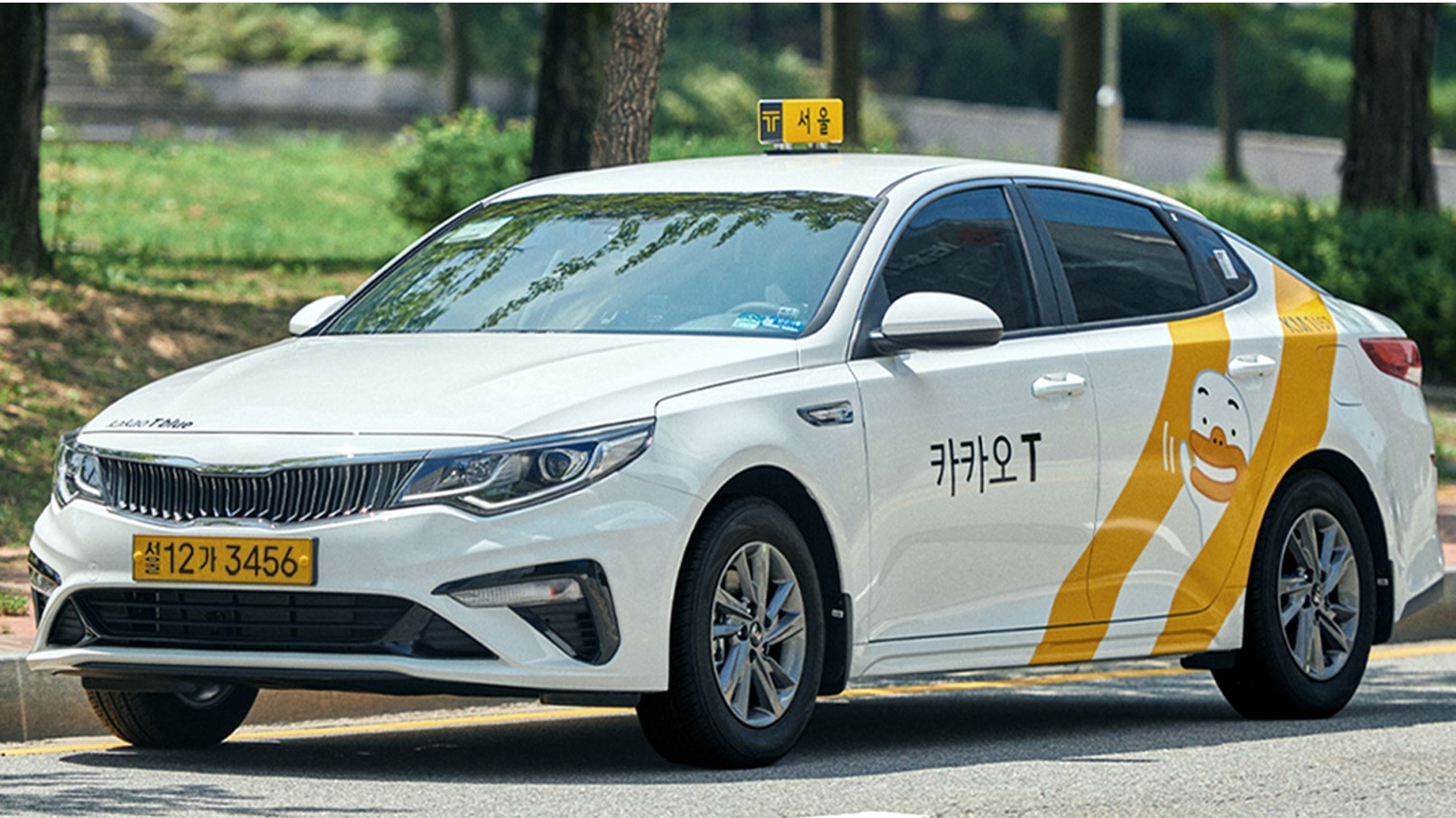Welcome to Korea! Want to know Korean Travel Phrases?
Whether you’re a seasoned traveler or a first-time visitor, learning a few basic Korean phrases can make your trip even more enjoyable. This guide will teach you 100 essential Korean phrases that will help you communicate with locals, get around, and make the most of your experience.
Korean Conversation for Travelers
Greetings and Farewells
- 안녕하세요 (Annyeonghaseyo): Hello
- 안녕하십니까? (Annyeongha-simnikka): Hello (formal)
- 반갑습니다 (Ban-gapseumnida): Nice to meet you
- 나도 반갑습니다 (Nado Ban-gapseumnida): Nice to meet you to
- 만나서 반갑습니다 (Mannaseo ban-gapseumnida): Nice to meet you (formal)
- 안녕히 계세요~ (Annyeonghi gyeseyo~) – Good bye! (When I leave)
- 다음에 또 만나요! (Daeum-e tto mannay!) – See you next time!
- 잘 가세요! (Jal gaseyo!) – Good bye! (When I send)
Conversations for introductions
- 안녕하세요, 제 이름은 (이름)입니다. (Annyeonghaseyo, je ireumeun (ireum)-ibnida.) – Hello, my name is (name).
- (나이)살입니다. ((Nai)sal-ibnida.) – I am (age) years old.
- (직업)입니다. (Jik-eop)-ibnida.) – It is (profession).
- (출신)입니다. (Chulsil)-ibnida.) – I am (from).
- (취미)를 좋아합니다. (Chwim-eul joh-ahabnida.) – I like to (hobby).
Asking for Directions
- 여기가 어디입니까? (Yeogi-ga eodi ibnikka?): Where am I?
- 화장실은 어디에 있습니까? (Hwajangsil-eun eodi-e iss-eumnikka?): Where is the bathroom?
- (지하철역/버스 정류장) 가는 길은 어디입니까? ((Jihacheolyeok/Beoseu jeongryujang) ganeun gil-eun eodi ibnikka?): How do I get to the (subway station/bus stop)?
- 좀 더 자세히 알려주시겠어요? (Jom deo jasehi arryeojusigeseo-yo?): Could you explain in more detail?
도와주세요 (Dwoajuseyo): Help me
Shopping
- 이거 얼마입니까? (Igeo eolma-imnikka?): How much is this?
- 좀 더 깎아주세요 (Jom deo kkajjuseyo): Can you give me a discount?
- 카드는 됩니까? (Kadeu-neun dwaebnikka?): Do you accept cards?
- 현금만 받으세요? (Hyeon-geum-man bad-euseyo?): Do you only accept cash?
- 괜찮습니다 (Gwaenchanseumnida): That’s fine
Restaurants
- 메뉴판 주세요 (Menyupan juseyo): Can I have a menu?
- 이거 주세요 (Igeo juseyo): I’ll have this
- 맛있습니다 (Mas-iss-eumnida): This is delicious
- 맵습니다 (Maebsumnida): This is spicy
- 계산서 주세요 (Gyesanseo juseyo): Can I have the bill?
- 맛있게 먹었습니다 (Mas-issge meogeossumnida): The food was delicious
- 채식 메뉴 있나요?(Chae-sik me-nyu iss-na-yo?): Do you have a vegetarian menu?
Other Useful Phrases
- 도와주세요 (Dwoajuseyo): Help me
- 죄송합니다 (Joesonghamnida): Sorry
- 고맙습니다 (Gomapseumnida): Thank you
- 천만에요 (Cheonman-eyo): You’re welcome
- 괜찮습니다 (Gwaenchanseumnida): That’s fine
- 네 (Ne): Yes
- 아니요 (Aniyo): No

Hotels
1. checking into a hotel
- 예약했습니다. (Yeyak-haessumnida.) – I have a reservation.
- 제 이름은 (이름)입니다. (Je ireumeun (ireum)-ibnida.) – My name is (name).
- 여권을 주세요. (Yeogwon-eul juseyo.) – Please give me my passport
- 짐을 맡길 수 있습니까? (Jim-eul namgil su its-eumnikka?) – Can I leave my luggage with you?
2. Room inquiries
- 화장실은 어디에 있습니까? (Hwajangsil-eun eodi-e iss-eumnikka?) – Where is the restroom?
- 와이파이 비밀번호는 무엇입니까? (Waipaibi milbumyeoneun mueoseumnikka?) – What is the wifi password?
- 조식은 언제부터 제공됩니까? (Josik-eun eonjebuteo gonggup-doebnikka?) – When is breakfast served?
3. Checking out of the hotel
- 계산서 주세요. (Gyesanseo juseyo.) – Can I have the bill, please?
- 짐을 꺼낼 수 있습니까? (Jim-eul kkeonal su its-eumnikka?) – Can I take my luggage out?
- 즐거운 시간을 보냈습니다. (Jeulgeoun sigan-eul bonaessumnida.) – I had a great time.
Tourist Attractions
1. directions
- (관광지 이름)은 어디입니까? ((Gwangwangji ireum)-eun eodi ibnikka?) – Where is (tourist attraction name)?
- (관광지 이름) 가는 길은 어디입니까? ((Gwangwangji ireum) ganeun gil-eun eodi ibnikka?) – Where are the directions to (tourist attraction name)?
- 가는 길에 맛집이 있습니까? (Ganeun gile masjip-i iss-eumnikka?) – Are there any restaurants along the way?
2. admission and sightseeing
- 입장료는 얼마입니까? (Ipjangnyo-neun eolma-imnikka?) – How much is the entrance fee?
- 영어 가이드 투어는 있습니까? (Yeong-eo gaideu tueowa iss-eumnikka?) – Do you have English guided tours?
- 사진 촬영이 가능합니까? (Sasin cheolyang-i ganunghamnida?) – Is it possible to take photos?
3. etc.
- 이곳은 정말 아름답습니다. (Igoseun jeongmal areumdapsumnida.) – This place is really beautiful.
- 한국에 와서 정말 기쁩니다. (Hanguge waseo jeongmal gi-eumnida.) – I am so happy to be in Korea
- 좋은 추억을 만들었습니다. (Joheun chueok-eul mandeureossumnida.) – I made good memories.
Department Stores
1. Locating items
When you ask an employee where something is:
- 죄송합니다. (Joesonghamnida.) – I’m sorry
- (물건 이름)은 어디에서 판매합니까? ((Mulgeon ireum)-eun eodi-eseo panmaehmnida?) – Where do you sell (name of item)?
- (브랜드 이름) 코너는 어디입니까? ((Beurendeu ireum) koneo-neun eodi ibnikka?) – Where is the (brand name) corner?
When an employee tells you where something is located:
- 5층 여성 의류 코너에 있습니다. (5-층 yeoseong uiryu koneo-e issumnida.) – It’s in the women’s clothing section on the fifth floor.
- 저쪽 끝에 있습니다. (Jeojjok kkeute issumnida.) – It’s over there at the end.
- 안내해 드리겠습니다. (Annaehae deurigessumnida.) – I’ll show you around.
2. Buying things
When buying something:
- 이거 주세요. (Igeo juseyo.) – I’ll have this, please.
- 카드로 결제할게요. (Kadeuro gyeoljehalgeyo.) – I’ll pay with my card.
- 봉투를 주세요. (Bongtu-reul juseyo.) – I’d like an envelope, please.
When an employee sells something:
- 10만원입니다. (10manwon-ibnida.) – It costs 100,000 won.
- 다른 색상도 있습니까? (Dareun saekssang-do iss-eumnikka?) – Do you have other colors?
- 영수증을 드리겠습니다. (Yeongsujeung-eul dureogessumnida.) – I will give you a receipt.
3. Refunds and exchanges
When asking for a refund:
- 이거 환불하고 싶습니다. (Igeo hwanbulhago sip-eumnida.) – I would like a refund for this.
- 영수증을 잃어버렸습니다. (Yeongsujeung-eul ireobeoreossumnida.) – I lost my receipt.
When requesting an exchange:
- 이거 다른 사이즈로 교환하고 싶습니다. (Igeo dareun saiju-ro gyohaenghago sip-eumnida.) – I would like to exchange this for a different size.
- 제품이 불량입니다. (Jepum-i bulryangibnida.) – The product is defective.
When an employee processes refunds and exchanges:
- 확인 후 환불해 드리겠습니다. (Hwak-in hu hwanbulhae deurigessumnida.) – We will refund you after checking.
- 교환 가능합니다. (Gyohaeng ganeunghamnida.) – Exchanges are available.
- 영수증이 필요합니다. (Yeongsujeung-i pilyohamnida.) – A receipt is required.
4. etc.
- 화장실은 어디에 있습니까? (Hwajangsil-eun eodi-e iss-eumnikka?) – Where are the restrooms?
- 휴게 공간은 어디입니까? (Hyuge gonggan-eun eodi ibnikka?) – Where is the rest area?
Korean Travel Phrases in Korean Conclusion
This guide provides you with a wide range of Korean phrases for different situations when traveling,
and is organized to help you learn effectively through concise and clear explanations and pronunciation markings.
Read it thoroughly before traveling and make your trip to Korea more enriching and enjoyable!
Korean Travel Phrases (FAQs)
Q: I don’t know any Korean, will this guide be enough for my trip?
A: You should be able to hold a basic conversation, but we recommend learning a few basic Korean phrases in advance to help you communicate more fully.
Q: Do you recommend any other learning resources besides this guide?
A: Yes, you can use travel-related Korean textbooks and apps to help you learn more effectively. You can also watch Korean dramas and movies.
Q: What should I do if I have trouble with pronunciation?
A: We’ve included pronunciation markings in this guide to help you, but you can also find Korean pronunciation training videos on YouTube or elsewhere.
Q: Who should I ask if I have questions while traveling?
A: You can ask your hotel staff or local people for help. You can also find a wealth of information on the Korea Tourism Organization (https://kto.visitkorea.or.kr/) website.
Q: Are there any apps to help me travel in Korea?
A: Yes, the following apps can be helpful.
- NAVER Papago: Translation app
- KakaoTalk: Messenger app
- Google Maps: Directions app
Q: Is there anything I should know about Korean travel culture?
A: Yes, South Korea is a culture that values politeness, so it’s important to use honorifics and treat others with respect. Also, please note that tipping is not generally practiced.




